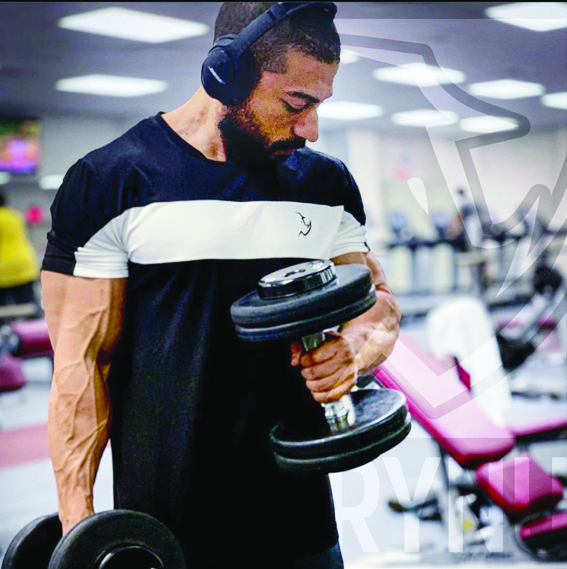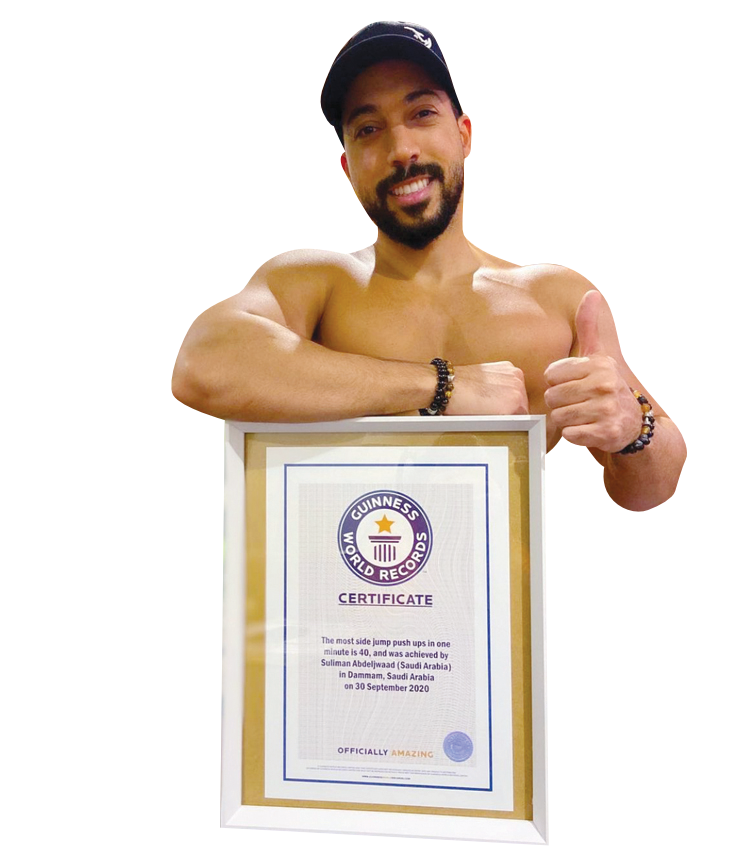JEDDAH: With interest in sport surging in the Kingdom, Saudis embarking on gym and exercise regimes have been warned to beware of self-appointed “experts” peddling fitness myths that can ruin workouts and even damage health.
Fitness specialists say that unreliable information on the internet and poorly researched advice can have a negative influence on those eager to join gyms.
Extreme diets and exercise programs can cause more harm than good, they warn.
Yumna Khalid, a 23-year-old university student, told Arab News that she has had many such experiences at her gym but has finally learned how to deal with them.

Extreme diets and exercise programs can cause more harm than good, experts warn
“Someone once told me that the more she sweats, the more fat she will lose, and that if she is not sweating heavily, her workout will not work. I said nothing but sympathized with the woman since she was working out wearing a hoodie in the scorching heat of Jeddah.”
Khalid said that people “should just listen to their bodies” to judge if a workout or diet is right for them.
HIGHLIGHTS
• Yumna Khalid, a 23-year-old university student, said that people ‘should just listen to their bodies’ to judge if a workout or diet is right for them.
• Nouf Hamdallah, a fitness trainer with nine years’ experience, said ‘the problem with these people is that they think what they are doing is the only right way. ‘They should just focus on themselves and not spread information that they aren’t sure about.’
• Suliman Abduljawad, a Guinness world record holder in fitness, said ‘one of the mistaken things that people are trading is that the female body is harder to train — that’s not true, it’s a simple science.’
“The body has a way of telling you. Do the workout that makes you feel good during and afterwards. If a workout or a diet feels wrong then just don’t do it. Listen to your body and you will be set.”
She added: “But listen to it when it is being reasonable and not at 3 a.m. when you want to eat eight donuts and a tub of ice cream.”
Casey Ho, a YouTuber who has been uploading home workout videos since 2009, was subjected to a wave of hate after announcing that she wanted to lose weight and get in the best shape of her life.

In her video, titled “How I lost 17.5 pounds in 12 weeks — My 90-Day Journey,” she said: “No, I don’t have an eating disorder. No, I don’t have a body image disorder. No, I don’t hate myself and, no, this journey wasn’t for you — it was for me.”
In a podcast called Off the Pills, Ho said that the body positive movement has grown so much over the years that now if someone wants to lose weight and look a certain way, they are labeled “anti-body positive” and kicked out of the community.
Returning to unhealthy habits is not the answer, she said. “It is a commitment of a lifetime.”

The trainer urged gym-goers to avoid training others if they are unqualified, adding that there was a big chance the advice might be harmful. (Shutterstock)
Nouf Hamdallah, a fitness trainer with nine years’ experience, said: “The problem with these people is that they think what they are doing is the only right way. They should just focus on themselves and not spread information that they aren’t sure about.”
According to Hamdallah, the best way to deal with such people is to ask: “What is the source of the information?”
She added: “They will think back on what they have said and if they do have a genuine source, you can take their advice.”
The trainer also urged gym-goers to avoid training others if they are unqualified, adding that there was a big chance the advice might be harmful.
Hamdallah said that a healthy lifestyle is about changing habits little by little, and is not about following a particular diet. “People tend to get the two mixed. 
For a healthy life, it’s just a caloric deficit, physical activity and enough sleep. It’s very simple.”
The trainer defined her personal experience as a series of trial and error, and said that still tries new approaches and methods in her diet and during her workouts.
She also said that her schedules are flexible, and she will not force herself to do something that does not feel right.
Depending on body type, results can take up to a year to show, while sometimes it is just three months, Hamdallah added.
I believe that a lot of Saudis can break a lot of records. I’ve seen the potential they have, but I think they just don’t know how to do it. I am more than happy to guide and help them.
Suliman Abduljawad, Guinness world record holder in fitness
However, according to Khalid, adopting a healthier lifestyle is not as tricky as it sometimes appears.
“I promise you, a healthy lifestyle isn’t just boiled chicken breast and white rice or a sad piece of bread. Now, more than ever, you can find delicious foods on the internet that is so good that you won’t even miss the sugar-filled or fried foods that you crave.”
Khalid said that she was discouraged because people kept telling her that she was eating, drinking and exercising the wrong way, and she was not seeing results in fitness. She later discovered that it takes time to change.
“That is OK. I have my own pace and I am happy with that,” she said.
Adding to the warnings, a Saudi champ has joined the fight against fitness myths
Suliman Abduljawad, a Guinness world record holder in fitness, joined social media to campaign for better messaging around fitness and exercise.
“I have heard a lot of wrong facts and tips about sports. A lot of people on social media don’t have a certificate in fitness, and I see them advising people based on their personal experience and not studies,” he told Arab News.
Abduljawad said that he decided to step in and educate people about the “rights and wrongs” of training.
The fitness champ said that he receives messages every day from followers asking him about information they read online.
Female personal trainers in Saudi Arabia are expensive compared with other countries because of the myths, he said.
“One of the mistaken things that people are trading is that the female body is harder to train — that’s not true, it’s a simple science,” Abduljawad said.
He also rejects the claim that training is bad for children. “I have a son, I cannot wait until he is 3 years old to train him. People say that children should not train, which is wrong. Their training is fun and they will enjoy it.”
Abduljawad said that he read Guinness World Records books as a child and wondered why there were no Saudi record-holders. It was then that he decided to work hard on himself.
He eventually broke two world records after a long journey — one in side jump push-up and one in archer push-up in 2020.
“I believe that a lot of Saudis can break a lot of records. I’ve seen the potential they have, but I think they just don’t know how to do it. I am more than happy to guide and help them.”
Abduljawad offers online training and dreams of having his own gym one day. “I’m aiming break 10 more world records.”
































